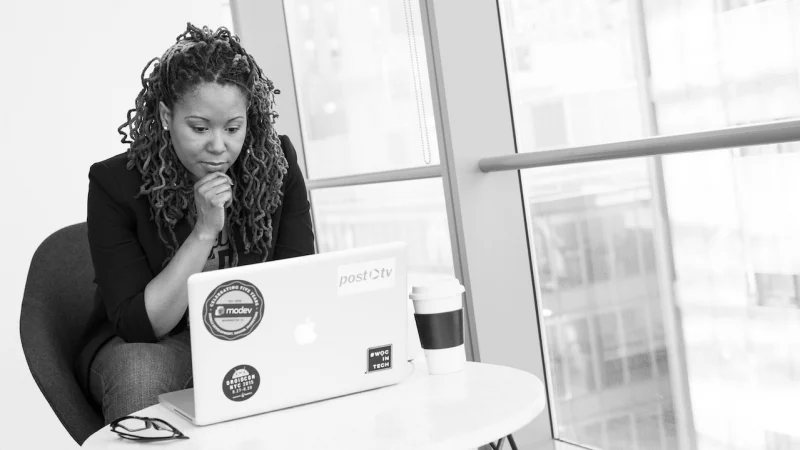
What role does your coach play in the MBA project? How is coaching useful? When should you start? Dedicated MBA admissions coaches from Europe, North America and South America share their experiences:
- Vivianne Wright, Admissions Coach and Career Coach, MBA House, Brazil
- Riadh Hamida, GMAT & MBA Coach and CEO, Cours Colbert, France
- Stacy Blackman, President, Stacy Blackman Consulting, USA
- Hubert Silly, Founder, MBA Centre, France
At what stage of the MBA project/application process is a coach most useful to MBA candidates?
Vivianne Wright: A coach is most useful at the beginning of the MBA project, assisting the candidate in understanding what an MBA will actually do for his/her career and personal life. A coach will also help the candidate visualize the multiple steps in the process, and organize their routine to fit the MBA project into it. This saves the candidate precious time and money. At the beginning of the MBA project the coach will also help the candidate determine which MBA programmes offer the best fit for the applicant’s goals. Even if a candidate already knows which schools he/she plans to apply to, it is the coach’s job to scrutinize that choice to a) assess whether that plan is realistic, and) be able to suggest programmes offering similar advantages that the candidate has not considered.
Riadh Hamida: A coach’s intervention is most helpful once the candidate has made a firm decision to participate in an MBA programme. A coach can suggest which MBA programme would best fit a candidate’s profile, but he cannot convince the candidate to enrol in a programme. Motivation is a critical element for the candidate, because he will need it in order to follow a rigorous study plan for the GMAT and, more importantly, during the MBA itself once he is accepted. The coach will point the candidate in the right direction and increase his chances of getting admitted, but there is no substitute for a candidate’s motivation.
Stacy Blackman: A coach will generally add the most value on the essays. The essays are complex and challenging and a good consultant can really help an applicant develop a meaningful and impactful essay strategy.
Hubert Silly: The MBA project frequently starts with a candidate's determination to boost his or her career. Early thoughts may have led the candidate to initiate the application process or to reach out for a coach, an expert in admissions strategies and preparation. Our understanding is that coaching best supports candidates at an early stage with strategic advice and throughout the process with thorough follow-up on each components of their application.
What kind of help do you give students? Where does it start and where does it end?
Vivianne Wright: Our admissions consulting services start off with a thorough assessment of the candidate’s profile, including their career goals and their life goals, their strengths and weaknesses as a prospective MBA candidate, and their personal preferences. We then establish a plan to mitigate the candidate’s weaknesses, such as a poor GMAT score, no relevant international experience, English speaking skills, etc. The candidate then undertakes brainstorming sessions with both a career and a writing coach to explore the myriad of experiences the candidate offers that could be brought into play in a business school setting and to communicate them effectively. After this assessment phase, the candidate will have the insight and energy to write their own essays, which are then reviewed by the coaches. We also show candidates the best ways to write a winning resume and how to coach their recommenders to write the most effective letters of recommendation. We also coach candidates for admissions interviews, all to ensure that by the time the candidate submits his/her application it is the most compelling representation of their candidature.
Riadh Hamida: The role of the coach is to help the candidate understand how the school’s admissions committee will view their own profile, and analyse together the decisive elements that will make them stand out from the thousands of other MBA candidates. The coach’s goal, therefore, is to adapt the candidate’s profile to the needs of schools by emphasizing certain key elements and minimizing weaknesses. What the coach cannot do is act as a ghost-writer, responding to essay questions on behalf of the candidate. This amounts to plagiarism and would only help an inadequate student get into a programme that might not be right for him.
Stacy Blackman: We offer the full range of assistance. We begin with helping a candidate decide whether to apply to business school, and if so, when and where. We then develop an application strategy and implement it across every point of contact with the schools. We help with every aspect of the MBA application process except the GMAT. Once an application is submitted we can still help with interview preparation, waitlist strategy, school decisions and more.
Hubert Silly: Coaching can be summarized as an "all-in-one" service. Coaching includes thorough profile evaluation, career assessment, essay editing (as part of the application itself), resume building and interview drills. Most candidates strive hard to obtain a competitive GMAT score. Supporting any candidate up until the admissions deadlines, our coaches always recommend candidates to work hard to produce a high quality application.
When is the right time to start working with a coach on your MBA project?
Vivianne Wright: As soon as you have decided to pursue an MBA, you should look for an admissions coach. This will enable you to define a very clear plan of where to go from there. It is never too early for a coach.
Riadh Hamida: As soon as possible. This will give the student more time to build his profile, develop valuable links with the school, and ultimately increase his chances of getting admitted. If certain aspects of the candidate’s profile need to be corrected or compensated for, then the sooner a viable solution to the problem is found, the better. Contacting a coach a few days before the application deadline will not allow the coach to produce the best results.
Stacy Blackman: It's helpful to work with a coach for up to a year before submitting your applications. For the first half of the period, you can work on improving yourself as a candidate. The second half is dedicated to actually working on the application. Of course, we frequently work on much tighter timelines and that is fine as well.
Hubert Silly: We tend to advise candidates to start working with a coach as soon as they have obtained a satisfactory and competitive GMAT score. Indeed, there is an obvious and defined correlation between a candidate's GMAT score (i.e.no less than 680 for the "top 10 business schools" is often recommended) and admissions success supported by our coaching services. An application is nothing less than a well-rounded, highly consistent process. It is our mission to help every candidate achieve this objective.
Are there cases in which you would not consider a coach to be useful or necessary?
Vivianne Wright: Admissions coaches are extremely useful to candidates planning to apply to competitive MBA programmes. By having your assets reviewed by expert advisors, it becomes a much more realistic endeavour. Top MBA programmes are highly selective, and schools reject even very impressive candidates. A coach’s job is to minimize the chances of that happening.
Riadh Hamida: Some students have been known to succeed by themselves through the entire application process. Personal accounts can be found across the web where candidates have relied solely on endurance, inspiration and insight to get accepted by the best schools. If a candidate is 100% confident that he can handle the application process by himself, then the help of a coach would be useless because his recommendations would not be taken into account.
Stacy Blackman: A coach is not useful if the applicant and coach do not connect on a personal level. To help take the applications to the next level, there has to be a high degree of trust and respect between coach and applicant. The most knowledgeable coach in the world will not be helpful if this relationship does not exist.
Hubert Silly: Absolutely not! In most cases, a prospective candidate easily and promptly realizes how much expertise is required to complete an application and how much time should be dedicated to writing efficient and well-argued essays. In many cases, even experienced or executive candidates end up enquiring about coaching for one simple reason: everyone seeks an external and independent point of view on their application.
What is your best success story so far?
Vivianne Wright: As an admissions coach, I get a thrill out of each and every candidate admitted to the programme of their choice. If I had to choose one story, it would be that of a student coming from a background of extreme poverty in the south of Brazil. He knew that his only chance to change his destiny was through study. He was right. His application earned him a full scholarship to a top European MBA programme. His story resonates with me because as a coach I see people using their drive to make their dreams come true.
Riadh Hamida: Every student who gets admitted to the school of his choice is a success story, but it would be extremely dishonest to claim that a candidate’s success can be attributed to a coach’s input. A coach will greatly increase the candidate’s chances of gaining admission, but at the end of the day it is the candidate’s profile and his own abilities that get him picked out of the crowd. It is important to remember that a coach is not a miracle worker and cannot get any student admitted to any school without the candidate’s efforts and initial skills.
Stacy Blackman: Every success story is a good one. Each client has a unique story with unique challenges. It's always rewarding to find what makes a client special, help them communicate their story and be a part of their journey.
Hubert Silly: To me, each story is a success story. The latest one is of Sebastien de Chaunac, ranked #19 in the French professional tennis ranking. He came to me after a severe injury which led him to leave his career as professional tennis player. He wanted to start working for his sponsor and had received several offers to work for the French Federation of Tennis. Sebastien had not finished his studies, which is the minimum usually required for an MBA. HEC decided to validate Sebastien's career as equivalent to a Bachelor’s degree, which was really a challenge as it is uncommon. After a lot of hard work Sebastien came up with a 650score on the GMAT and got admitted to HEC.


Comments